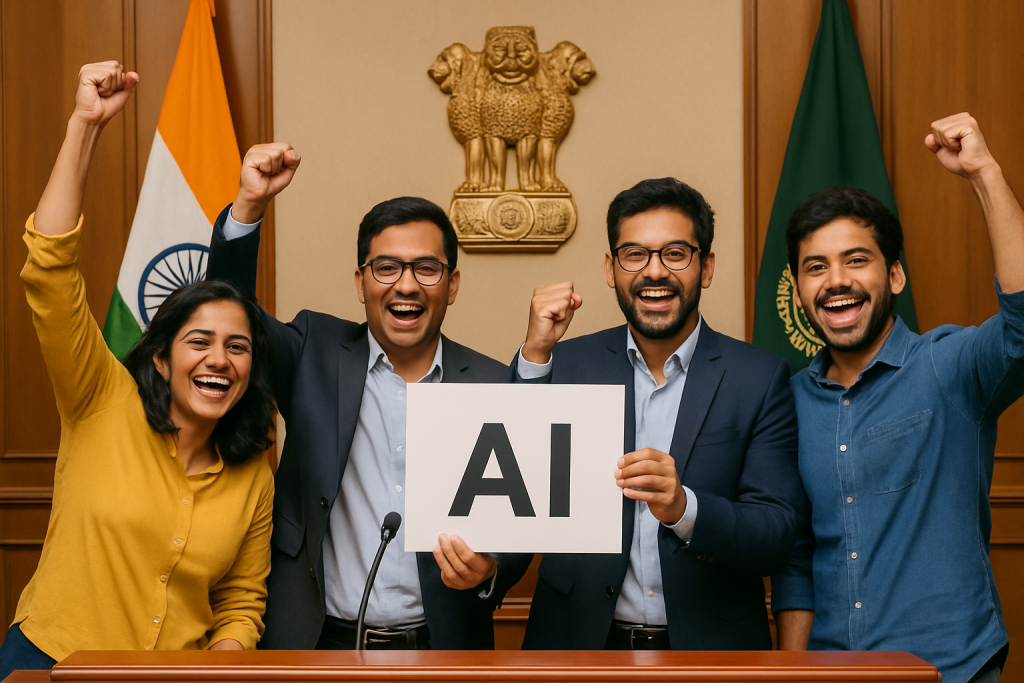Mid-career and senior professionals worried about AI replacing them might have the situation backwards. According to research from the Skills Horizon project, experienced workers possess a crucial competitive edge that younger employees often lack.
While 79% of Indian companies plan to boost AI spending in 2025, according to Fretworks’ AI Workplace Report, the real challenge isn’t adoption—it’s using AI effectively. Seasoned professionals are proving superior at evaluating AI outputs and creating better prompts.
Why It Matters Now
The CEO of a South American creative agency told Skills Horizon researchers a striking observation: “Senior colleagues are using multiple AIs. If they don’t have the right solution, they re-prompt, iterate, but the juniors are satisfied with the first answer, they copy, paste and think they’re finished.”
This pattern repeats across industries. Younger workers may feel comfortable with technology, but comfort doesn’t equal competence. A survey of US teens found 72% had used AI companion apps, often for everyday decisions. Many develop habits of “vibing” with AI responses rather than critically evaluating them.
Experienced professionals approach AI differently. They treat it like briefing a junior colleague—providing context, constraints, and specific objectives. Where a junior might ask AI to “write copy for a sustainability campaign,” a seasoned account director specifies audience, tone, manufacturing details, and brand voice.
Strategic Advantage
This prompting skill mirrors decades of managing teams and projects. Experienced workers understand that detailed instructions produce better results. They also recognize when something doesn’t fit—a critical ability as AI occasionally hallucinates or produces inaccurate information.
According to EY research on Gennia’s impact in India, 24% of tasks can 0be fully automated, while time spent on another 42% can be significantly reduced. This productivity boost could free up 8-10 hours per week for corporate workers. But realizing these gains requires judgment about which tasks to automate and which outputs to accept.
McKinsey research indicates most companies plan to increase AI investments, but only a small percentage rate themselves as fully mature in responsible AI practices. Global average scores for responsible AI readiness are around 2 out of 4, highlighting a significant maturity gap.
Market Impact in India
India leads global AI adoption, with 45% of workers using AI daily compared to 26% globally, according to Fresh works data. However, 74% of Indian professionals consider themselves knowledgeable in AI, suggesting confidence may outpace actual competency.
“The combination of mandatory AI integration and workforce upskilling initiatives is driving India’s productivity and innovation to new heights,” said Shelton Rego, Vice President, Fresh works India.
The productivity potential is enormous. EY projects Genai could drive a 2.61% productivity boost by 2030—equivalent to six years of growth—affecting India’s 38 million employees. The services sector will see the most significant gains due to higher labour share in gross output.
What Business Leaders Should Know
Successful AI adoption requires clear strategies, process reimagining, and targeted reskilling. Large-scale upskilling initiatives, supported by public-private partnerships, are crucial for bridging skill gaps.
For experienced workers feeling threatened, the strategy is clear: leverage existing strengths. Start small with routine tasks. Use critical judgment to evaluate and refine AI outputs. Practice detailed prompting, such as briefing junior staff.
The research reveals that employees are more ready for AI than leaders realize. Workers are already using AI regularly and are eager to gain skills. The most significant barrier to scaling isn’t employee resistance—it’s leadership hesitation.
Companies that invest strategically can create transformative change rather than just incremental improvements. The key lies in combining AI’s processing power with human judgment and experience. In this partnership, seasoned professionals aren’t obsolete—they’re essential.
As one US-based multinational CEO noted to Skills Horizon researchers: “AI can be a form of existential challenge, not only to what you’re doing, but how you view yourself.” Yet experienced workers who embrace their supervisory and evaluative strengths will find AI amplifies rather than replaces their value.


